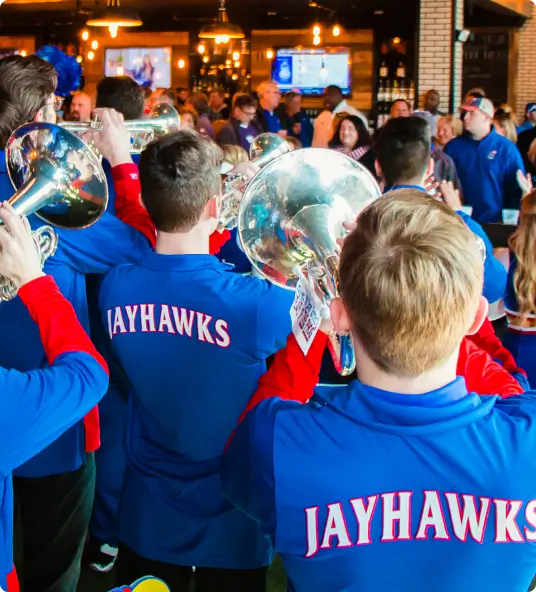Jayhawks in leadership positions are everywhere you look, including through the Jayhawk Career Network. KU Alumni, in partnership with SumnerOne, is highlighting Jayhawk leaders who are models for others in their industries with our “Copy the Leader” program.
What do you do in your work?
I work in Corporate Development at Amazon, where I engage with our business teams and other companies to identify and execute strategic transactions that support Amazon’s worldwide operations and logistics network. These transactions can take the form of acquisitions, investments, licenses, or other types of strategic partnerships that can improve Amazon’s operations and ultimately benefit our customers. It’s a mix of strategy, collaboration, and execution. Prior to joining the Corporate Development team, I was a corporate lawyer, focusing mainly on M&A, investments, and financing transactions. In my time at Amazon I’ve had the opportunity to work on a lot of exciting deals, including acquisitions of Whole Foods, Ring, Zoox, and MGM, as well as our more recent licensing transaction with Covariant.
What are the qualities of a good leader?
Every leader has their own style and approach that works for them, but there are a few qualities that I see demonstrated consistently across excellent leaders: strong communication skills, decisiveness, willingness to dive deep into the details that matter, empathy, openness to feedback, and a desire to continually learn and improve. Mentorship and teaching are also important parts of leadership – I was fortunate to have great training and hands-on mentorship early on as a lawyer, which really shaped how I approach my work today.
How do you practice leadership at your job?
A lot of my role is like being a quarterback on a deal — working with a large number of internal and external stakeholders on any particular project, often on timelines that feel impossibly short. One of the most important things I do is communicate proactively. I try to build trust with my colleagues by making sure that everyone involved understands the “why” behind the project (not just what they are being asked to do to help, but why it matters). I aim to make decisions quickly but thoughtfully, and give others an opportunity to weigh in and share their viewpoints. Above all, I strive to treat people with honesty, respect, and patience (though I’m the first to admit that patience is not my strong suit…), and to keep a positive attitude and have fun even in times of stress. Work doesn’t have to be a grind all the time – it’s so much better if you and your colleagues are having fun along the way.

What makes a team or group successful?
At the end of the day, to be successful a team needs to deliver results, whether that means closing a deal, launching a new project or business line, or achieving some other business goal. There are a lot of inputs and factors that can set a team up for success, such as open lines of communication, efficient processes & procedures, strong corporate culture, and a working environment that helps people feel motivated and energized by their work. But it’s important not to lose sight of the end goal – a team will only be successful if they are delivering real results.
How can leaders in your industry help their organizations adapt to change?
I think it’s important to have an organizational culture that encourages people to feel comfortable taking smart risks. Big innovations and progress never come without taking some risk and pushing boundaries. Sometimes those risks will pan out and lead to huge new opportunities, and sometimes they won’t. When someone takes a risk and it doesn’t work out as hoped, it’s important to look back and see what lessons can be learned from it – but the lesson should never be “don’t take risks”.
Want to receive alumni and career stories like this in your inbox? Subscribe to the Water Cooler, a monthly career newsletter for alumni, students and friends. It includes upcoming events, featured mentors, stories about alumni and students, jobs and more.




